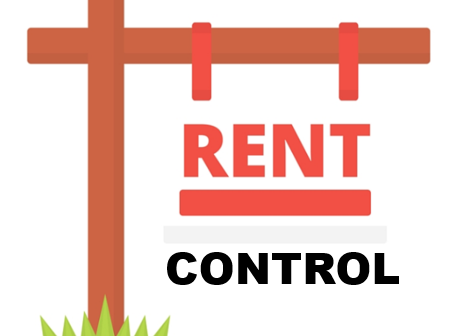
-
California Statewide Rent Control: Impact on Investors
Monday, November 11th, 2019
Introduction:
California Governor Gavin Newsom recently signed a statewide rent control law that not only limits rent increases but is also creating a lot of buzz from strong proponents to die-hard detractors and everyone in between. There are plenty of opinions on both sides of the issue and questions swirling about as to what the law really means and who it will ultimately serve. For instance;
- Will the new law really help renters and homelessness?
- Is this more of a political move than a real attempt to help address the affordable housing crisis?
- Will the new law hurt, help or have no impact on investors / landlords?
This new law is the latest in a surge of initiatives springing up nationwide that are supposed to address the affordable-housing crunch. It was pitched, not so much as the end-all solution, but as a step in the right direction. Advocates hope it will stop sudden and steep rent increases, as well as no-fault evictions that, in some cases, were being used to empty entire buildings so that owners / landlords could re-rent to higher-income households.
To get some perspective on this new law, I’ve peeled back the layers to answer some of the most pertinent questions, particularly what this means for multifamily investors/owner.
What are the facts of the California statewide rent control law?
- The law limits rent increases to 5% each year plus inflation until Jan. 1, 2030.
- It bans landlords from evicting tenants without cause.
- To prevent landlords from rushing in to raise rents just before the law takes effect (January 1, 2020) it applies to rent increases on or after March 15, 2019.
What does it mean for multifamily investing in California?
If you take rent control at its core, investors /owners of multifamily as well as many economists oppose it at face value. Investors / owners see rent control as having the ability to diminish the value of their properties, particularly when the market conditions support rising rental prices. Economists argue that the message of rising rental prices is to build more housing rather than control rent increases. In fact, rent control can have a negative impact on renters.
The new law might serve as a call to action. It could serve as a catalyst for owners / landlords to take some overdue actions as it relates to problem tenants or below market rental prices.
Additionally, the new law has some limitations that may be viewed as positive for investors / owners.
- It does not apply to housing built within the last 15 years. Advocates hope that this will encourage developers to build more.
- It does not apply to single family homes, except those owned by corporations or real estate investment trusts.
- It does not cover duplexes where the owner lives in one of the units.
- It does not cover California residents who already have rent control.
On the negative side;
- The law adds an expensive eviction process, adds unnecessary expenses to all landlords / owners and makes it more difficult to sever a relationship with a problem tenant.
Conclusion: There are plenty of stories of unscrupulous landlords raising rents and evicting without cause just as there are stories of deadbeat tenants. Like most things in life, we should seek to strike a balance between tenant rights and owner/investor opportunity. If the rental market is going up, investors and landlords should not have their hands tied when it comes to maximizing the value of their property or their profits. The scariest part of this whole thing is that it was passed into.